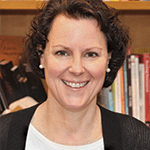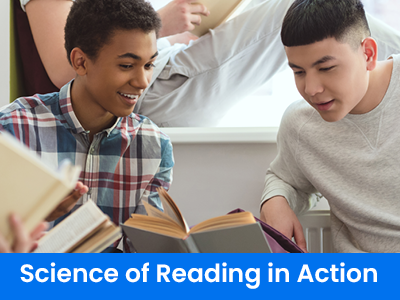
edWebinars
«Back to all edWebinars- This event has passed.
Empowering Learners with Dyslexia to Acquire and Utilize Their Digital Voices
Thursday, October 8, 2020 @ 3:00 pm - 4:00 pm EDT

Presented by Nanci K. Shepardson, M.S.Ed., Ed.S. W.D.P., Senior Educational Technologist, Wilson Language Training
Hosted by Terrie Noland, C.A.L.P., Vice President, Educator Initiatives, Learning Ally
Sponsored by Learning Ally
Get a CE Certificate for this edWebinar Learn more
Students with dyslexia often find their voice drowned out by their peers. Using technology to give them a voice is empowering and can lead to greater confidence!
To effectively facilitate student voices on a digital platform, you need an understanding of what digital literacy is and how it can be leveraged to enable positive outcomes for all students, particularly those with dyslexia. Sifting through all of the available online learning tools can quickly become an overwhelming task; this recorded edWebinar will narrow the field, first by viewing them through the important lens of online privacy, equity, and access, and finally by sorting them by the following categories: physical tools, back channeling, web-based add-ons, general apps, assessment tools, video and audio tools, digital storytelling, presentation tools, organization tools, and blogging.
PreK-12 teachers and school and district leaders will find this recorded session informative and leave with clear takeaways that can be implemented in an in-person, distance or hybrid learning environment.

Nanci Shepardson is a reading and educational specialist. She graduated from Wheelock College in 1989 with a bachelor’s degree in preschool/kindergarten curriculum and infant/ toddler development. In 2010, she graduated from Simmons University with an M.S.Ed. in language and literacy and an Ed.S. in assistive technology.
Nanci is a seasoned teacher, a credentialed K-12 reading specialist, and an International Dyslexia Association and Wilson Reading System Dyslexia Practitioner (WRS Level 1 Certified). Nanci has taught kindergarten, second grade, and fourth grade, and was a reading and educational specialist for grades seven through postgraduate and has tutored all ages. She consults for the International Dyslexia Association, she is an advocate for students with disabilities and their families and is also a professional speaker on dyslexia, language-based disabilities, and assistive technology throughout the country. Prior to joining Wilson Language Training, she was the head of Learning Resources at The Chapin School in Manhattan.
As the senior educational technologist at Wilson Language Training, Nanci works in the Program Development Department. In her role, she works with the Wilson Reading System (WRS) team and the technology team to create traditional and digital tools that will augment the current WRS curriculum and materials. She stays abreast of the current technological trends and serves as a resource for parents, teachers, and schools on assistive technology. Nanci is also a parent of a grown child with dyslexia.

Terrie Noland serves as Vice President of Educator Initiatives at Learning Ally, where she works to develop engagement programs, shares knowledge through strategic relationships, and promotes communities for educators. She has more than 25 years of experience as both a motivational leader and developer of content for educators and administrators. She has had the opportunity to lead and facilitate groups numbering in the thousands, inspiring them around a transformational change in their approach to struggling readers. Terrie is certified as an Academic Language Practitioner and is currently working towards a Ph.D. in literacy, with an emphasis in educational leadership from St. John’s University. She is also a certified John Maxwell speaker and facilitator.
Join the Empowering Struggling Readers community to network with educators, participate in online discussions, receive invitations to upcoming edWebinars, and view recordings of previous programs to earn CE certificates.





